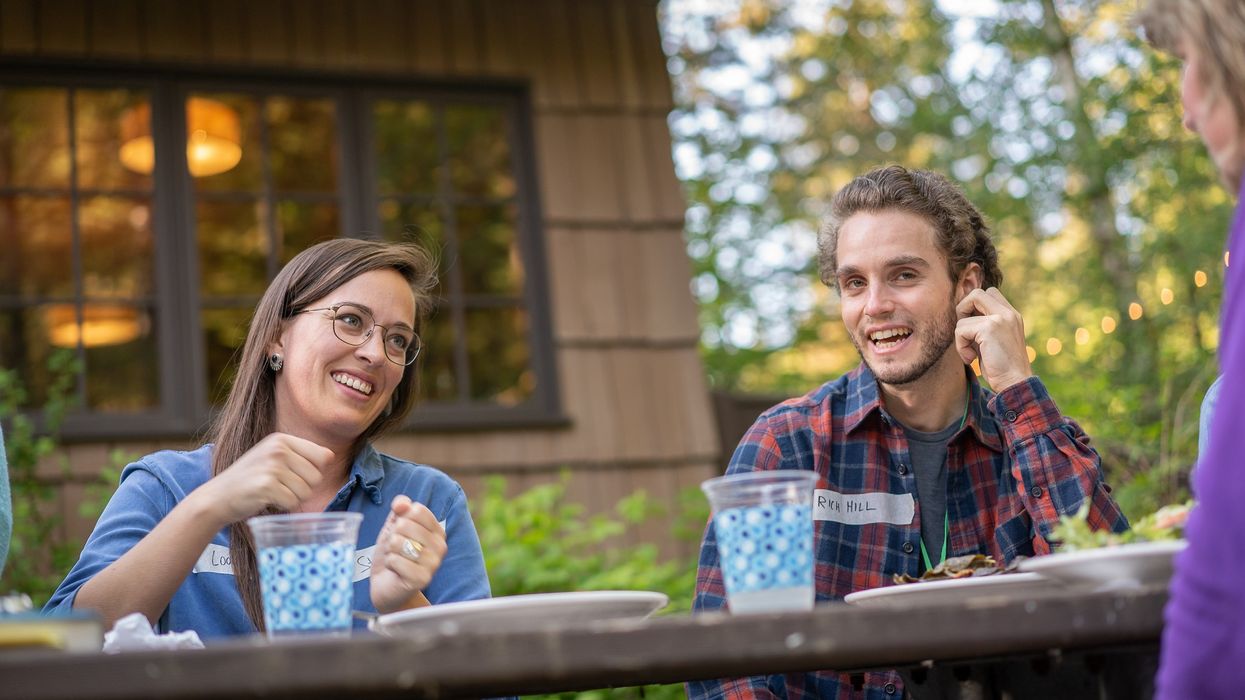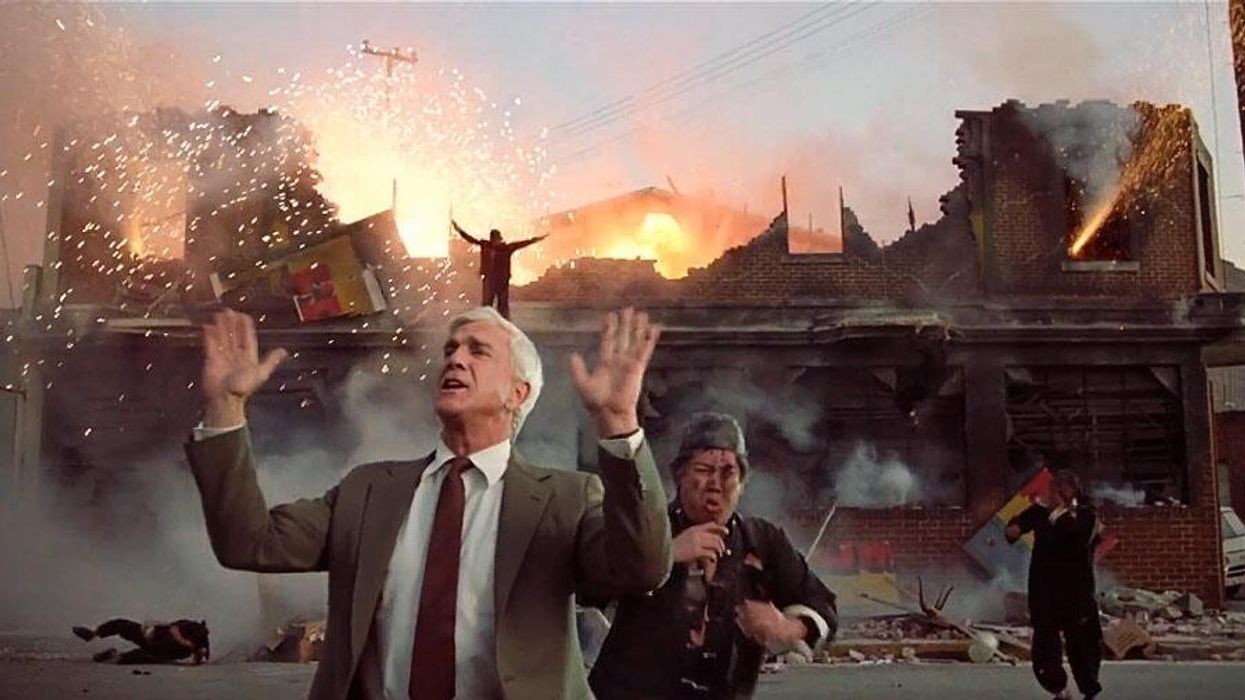6 Things To Remember Before Shooting Your Documentary
Thanks to the digital age, making documentaries is more affordable than ever, but making a living at it remains a challenge. Oregon Doc Camp is here to help.

Now in its fifth year, Oregon Doc Camp, which ran from May 31-June 3, 2018, in Sublimity, Oregon, devoted a large portion of this year’s event to the issue of career sustainability. Before beginning his presentation, veteran documentary filmmaker Doug Block (112 Weddings) projected an image of his latest royalty check…for 73 cents. “I got this check in the mail before I got here… and that’s my talk on sustainability,” Block joked. The audience of documentary filmmakers laughed, but it wasn't really a joking matter.
According to The State of the Documentary Field, a 2016 Survey of Documentary Industry Members, documentary film professionals view making a living as the most pressing (and most challenging) issue facing the industry. A meager 22% of documentary professionals admit that they're able to make their primary living from documentary filmmaking, according to the report. “There are ten times more filmmakers looking for the same pot of limited funding,” said Block, “That’s the reality of it.”
But it wasn't all gloom and doom in the Oregon woods. The weekend’s featured speakers, including Block, Alexandria Bombach (On Her Shoulders), Cornelius Swart (Priced Out), Amy Benson (Drawing the Tiger), as well as Jax Deluca (Director of Media Arts at the National Endowment for the Arts), and other Doc Camp participants, shared tips and advice on career sustainability.
Below are some key takeaways from the weekend’s panels, keynote presentations, and discussions:

Some filmmakers opt for a day job, unrelated to their documentary career, to pay the bills, while others, like Block, use their documentary skills to make money.
“For sustainability reasons, I’ve been shooting weddings on the side for over 20 years,” said Block, who eventually incorporated some of the wedding footage he shot over the years in his feature documentary, 112 Weddings. “I knew from the first wedding I shot that there was a film here. You die for access to your subjects and with wedding videos, they’re not only giving me access to be alone with them on their wedding day, but they’re giving me money too. I was lucky to find weddings as a side business because I could practice my craft while doing it.”
"I’ve made a conscious choice to sacrifice creature comforts in order to sustain my life to make the films I want to make."—Alexandria Bombach
Filmmaker Amy Benson said she and her husband Scott Squire, who co-directed Drawing the Tiger, manage to sustain themselves by living in federally subsidized housing for artists. “If we did not have that—especially in Seattle where housing prices have skyrocketed—I don’t know what we would do. If we had not been in artist-housing, I don’t think we would have made our film.”
Director Julie Wyman (A Boy Named Sue) said she knew early on that if she wanted to make films, she’d have to find a steady job, ideally one involving film. “I'm a tenured professor. Making films is part of my job. It’s a good structure for me,” said Wyman, who is a tenured Associate Professor of Cinema and Digital Media at UC Davis.
Bombach has opted to lead a nomadic life in order to focus on filmmaking. “I’ve made a conscious choice to sacrifice creature comforts in order to sustain my life to make the films I want to make,” said Bombach. “I know some filmmakers aren’t able to go out for a few months because they have a family, expensive rent, or pets. I just streamlined my life to adapt to what documentaries need. It’s not a choice for everybody, but it’s a choice I’ve made.”

“We are part of a community and it can get competitive because we’re all going for the same opportunities,” said Deluca, “but we’re all going to be growing up together and continue to build the field together, so now is an important time for alliance building.”
Attending networking and professional development events like Oregon Doc Camp can help you meet potential collaborators. It's also a good opportunity to learn how your peers sustain themselves. “Talk to other filmmakers and ask, ‘how did you get this funded?’ Talk to people who have already gotten the grant you want. You never know what you’ll learn,” said Bombach. Join organizations such as Film Fatales where female feature film directors and television directors share advice and resources.
" We share our budgets, we share our proposals, we talk about that distributor who ripped us off on that thing." —Doug Block
If you’re not able to travel and don’t live in a documentary hub like New York, Los Angeles, Chicago (or Portland?!), you can still connect with fellow filmmakers through online communities like D-Word, which Block founded in 1999. “It’s a support system. We share our budgets, we share our proposals, we talk about that distributor who ripped us off on that thing. There’s also a database, so if you need a camera person in Cameroon, you can do a search and find out who is a member there,” Block explained.

Block said he couldn’t have had the career he’s had if he didn’t know how to shoot. He worked as a freelance cameraman for years and shoots in addition to directing his films. “It’s really important that I can get a film to where I can make a sample so I can get funding,” he explained, "and It helps to be a jack-or-jill of all trades. I’ve produced, I’ve consulting produced, I’ve executive produced, and now I'm getting into the area of coaching filmmakers."
If you know how to edit or shoot, you can make money working on other projects. If you’re an established director, you could take a for-hire job directing a commercial, branded content, or a TV or film project. Beth Federici, director of James Beard: America’s First Foodie, said that in between films, she stays busy by directing short documentary segments for OPB, the PBS-affiliate in Oregon, and teaching filmmaking at Northwest Film Center. “It’s a way to hone my skills and make some money while doing research for my next project.”
“A very big part of my sustainability involves piggy-backing on other projects." —Alexandria Bombach
You never know when that corporate job or branded content gig will lead to opportunities to advance your own project. “A very big part of my sustainability involves piggy-backing on other projects,” said Bombach. “Some commercial projects have helped me to travel places for my personal projects.” Bombach said she has done a fair amount of branded content work in the past, but is planning to cut back. “Sustainability-wise, I do editing consulting and consult on Kickstarter campaigns. I also shoot for hire,” she said.
4. Look for institutional support and think outside-the-box.
Plug into both national and regional organizations. Most documentary filmmakers are aware of organizations like IFP, IDA, and Sundance Institute, but Deluca said they should also research local organizations that might be interested in supporting homegrown talent. Don’t forget to look into state film incentive programs and check out this list of grants.
Deluca reminded the audience to remember that they’re also artists and can sometimes apply to artist residencies or fellowship programs like MacDowell Colony. She also pointed out that “every National Park has a residency program and there’s sometimes a cabin reserved for an artist.”

“There must be a stage when you’re working on your film," admitted Deluca, "where it’s sort of like having a kid. Where you think ‘in three years, I’ll have to look into a pre-school program.’ You sort of have to think that way for your film. You might want to create a grant calendar or a resources calendar for yourself.
Bombach said she plots out deadlines for grants and festivals many months in advance. “Take a whole calendar and think ‘if I'm going to be shooting this month, I might be able to apply to a post-production grant this month,” said Bombach. “Timing is really important.”
"Sustainability is a life-long sport."—Alexandria Bombach
6. Be realistic while remembering that you’re in it for the long haul.
Unfortunately, there are no easy answers when it comes to career sustainability. “This is a conversation that will take a long time to change,” said Deluca.
And, of course, everyone’s situation is different and everyone has to find their own path to sustainability. “Sustainability is a life-long sport. I don’t think there’s one answer,” said Bombach. “This career can be sustainable with a lot of different paths. Some people supplement their work through commercial work or through freelancing as a cinematographer or an editor, but I don’t think there’s one fail-proof answer.”
For more information on Oregon Doc Camp, click here.











